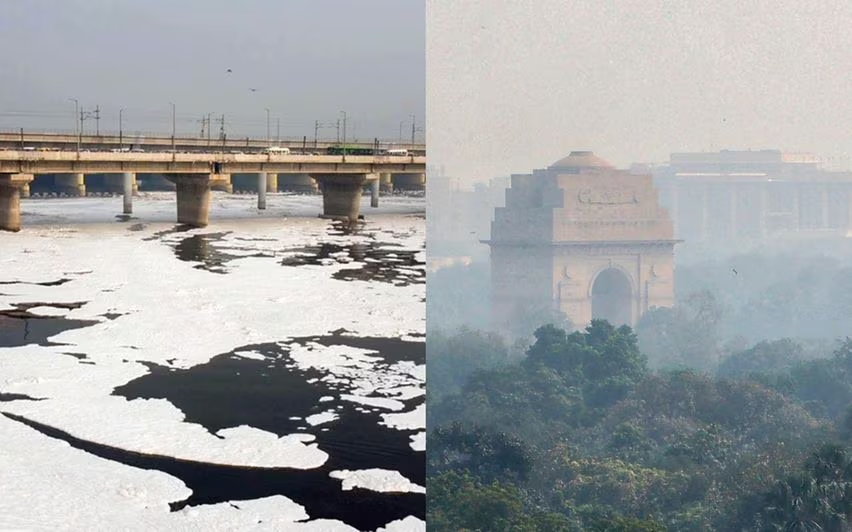
New Delhi: On Monday morning, air quality in Delhi deteriorated significantly, with a thick layer of smog covering many areas. The Central Pollution Control Board reported that the Air Quality Index (AQI) reached a severe level of 483 at 7 am. Residents expressed concerns about the impact of pollution, noting symptoms like eye irritation, coughing, and breathing difficulties. One local remarked on the harsh conditions, saying that long-term residents have adapted, but newcomers would struggle to cope.
Despite the smog, train services continued, and Delhi International Airport Limited (DIAL) announced that low visibility procedures were in place, though flight operations remained normal. Passengers were advised to check with their airlines for updates.
In Agra, the Taj Mahal was shrouded in haze as air quality also fell into the ‘Poor’ category. In response to the worsening air conditions, Delhi Chief Minister Atishi announced that physical classes would be halted for all students except those in grades 10 and 12, transitioning to online learning until further notice.
Delhi’s Environment Minister, Gopal Rai, planned to meet with department heads to discuss implementing the Graded Response Action Plan (GRAP) Stage IV, which was activated due to the severe air quality. The GRAP outlines four stages based on air quality levels, with Stage IV indicating an AQI above 450.
The Stage IV response includes an eight-point action plan aimed at reducing pollution, such as banning non-essential truck traffic in Delhi, allowing only trucks carrying essential goods. Restrictions will also apply to light commercial vehicles from outside Delhi, while certain diesel vehicles will be prohibited unless they provide essential services.
Furthermore, the ban on construction and demolition activities now extends to public infrastructure projects. State and central governments have been encouraged to shift classes for grades VI-IX and XI to online formats and to limit office attendance to 50%, promoting remote work where possible. Additional emergency measures, like closing colleges and non-essential businesses and considering an odd-even vehicle policy, have also been suggested. The Commission for Air Quality Management (CAQM) urged citizens, especially vulnerable groups, to stay indoors as much as possible and assured that air quality would be closely monitored for necessary further actions.
